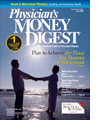Model Your 401(k) After a Pension Plan
According to a recent study byWatson Wyatt Worldwide,traditional employer-fundedpension plans outperformedworker-funded 401(k) plans during the2000 to 2002 bear market. The studyfound that although both plans lostmoney, 401(k) plans fared worse by anaverage of 3.86% a year compared withprofessionally managed pension plans.
The findings bolster critics'argumentsthat compared with defined-benefit pensionplans, 401(k) and similar retirementplans are not up to the task of preparingAmericans for a financially secure retirement.So, what can employees managingtheir own 401(k) or similar account do tobridge the gap and ensure their accountprovides adequate retirement income?Consider the following suggestions:
•Rebalance your assets. One of thekey findings of the study was that mostworkers failed to rebalance their 401(k)accounts. Pension plans follow a disciplinedinvestment plan and regularlyrebalance to reduce risk and maintaintheir various asset categories in thedesired ratios described in the plan.
The consequences of not rebalancingperiodically became apparent in the wakeof the 1990's market boom. Becauseworkers typically didn't rebalance, thestock portion of their portfolios grew disproportionately.By 1999, stocks comprised72% of 401(k) account values,according to the Federal Reserve Board,whereas defined-benefit pension plansheld only 59% in equities. Thus, whenthe stock market started tumbling, stock-heavy401(k)s suffered steeper losses.
•Diversify. It's important to maintaina diversified portfolio. When someassets are down, others may be up. Forexample, although stocks suffered duringthe last bear market, bonds and realestate did well.
The Watson Wyatt study found thatlarge company 401(k) plans performedbetter than plans run by small companies.The study attributed the difference to thefact that larger employers offer moreinvestment options, thus allowing forgreater diversification.
•Avoid overexposure. A 2003 studyby Hewitt Associates noted that the average401(k) participant who held employerstock devoted 42% of their account toit. As Enron and other corporate bankruptcieshave taught us, overweighting incompany stock can be very risky.
•Contribute and match. The 401(k)plan will be the main source of incomefor many future retirees. So if you workin a practice that matches contributions,take full advantage of the opportunity.Ideally, you should increase your contributionamounts every year.
This article has been produced by the Financial
Planning Association (www.fpanet.org), which is
the membership organization for the financial
planning community.
